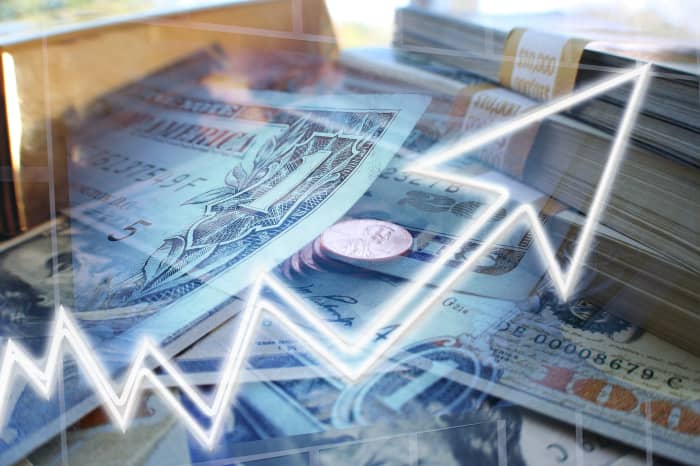As inflation hits a new 40-year high, 5 financial advisers on what they’re doing with their own money amid high inflation

The annual rate of inflation in the U.S. rose to 8.5%, which is a four-decade high, new consumer price index data revealed. Inflation hasn’t been this high since the early 1980s, as prices on everyday items including gas, housing and food are increasing. So we asked financial advisers: What are you doing with your own money to combat inflation? (You can use this tool to get matched with a financial adviser who meets your needs.)
Dividend growth stocks from quality companies — Leslie Thompson, chief investment officer at Spectrum Wealth Management
“To combat the effects of inflation on my future purchasing power, I invest in dividend growth stocks focusing on quality companies with a competitive brand positioning, solid balance sheet, and cash flow and earnings growth — which is different from investing in a stock with the highest yield. Some stocks may not have a meaningful yield today, but the company has the willingness and ability to grow its dividends long-term. Over time, dividends have made up a substantial portion of the total return of the S&P 500. By investing in dividend growth stocks, I will benefit from the appreciation of the stock’s price as well as the cash flow growth through an increasing dividend stream,” says certified financial planner Thompson, who highlights that in his case, he has “at least 10 years before I need access to my investment portfolio.”
Stocks and real estate — Andrew Ross, private wealth adviser at Integrated Partners
“I have a long time horizon, so I’m primarily invested in stocks to combat inflation. If given enough time, stocks have historically outpaced inflation by a wide margin,” says Ross, who is also a chartered financial consultant and a certified plan fiduciary adviser. “To take this further, as a long-term investor, I view 10%, 15%, 30% declines in the market as opportunities for me to buy shares of great companies at a discount.”
“I also believe that real estate is a critical part of a well-diversified portfolio, and it’s also a great inflation fighter. My primary residence has increased in value and my rental property has not only increased in value, but our rental income has been increasing every two to three years,” says Ross. (You can use this tool to get matched with a financial adviser who meets your needs.)
Agricultural investments and real estate — Tatiana Tsoir, certified public accountant and author of Dream Bold, Start Smart
Real estates is a good investment during inflation, says Troir, who adds that she owns “a few rental properties along with our primary home.” And she adds: “Skyrocketing gas prices along with inflation have made us think about farmland acquisition and other agriculture investments.”
A diversified stock portfolio and very short-term cash — Kyle McBrien, certified financial planner at Betterment
“For the money I need in the next few months, I’m keeping it in cash because I know roughly how much I need and when I’ll need it. Yes, it’s possible I may lose some purchasing power to inflation, but the alternative choice is to invest my funds to keep pace with inflation. In that alternative, I risk losing money to market volatility which we have seen plenty of lately. The downside of short-term volatility in the market is likely greater than the downside of inflation in the short-term, so I’m electing to keep my short-term funds out of the market,” says McBrien.
For money that McBrien needs long-term, he’s not changing anything and he’s staying aggressive given his long time horizon. “Stocks have historically been a strong long-term hedge against inflation so I’m keeping my long-term investments in a diversified stock portfolio,” says McBrien.
Private debt and luxury watches — Michelle Connell, chartered financial analyst and president at Portia Capital Management
“To avoid further inflation/interest rate risk, I sold my bonds with maturities of three years or more and just like I did for my clients, I invested the proceeds in senior secured private debt with maturities of two years or less that have variable rates. The current yield is almost 6% and this interval debt can be liquidated quarterly,” says Connell.
What’s more, Connell says she considers herself a horologist (someone who collects watches). “Luxury watches have increased over 60% in the past decade and the trend is expected to continue as luxury watches are seen as means of storing wealth. Even crypto millionaires have been swapping out some profits for luxury watches,” says Connell. (You can use this tool to get matched with a financial adviser who meets your needs.)




